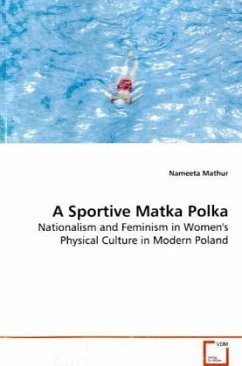This book examines the interaction between
nationalism and feminism in modern Polish women s
physical culture from the late nineteenth century
until the end of the twentieth century. Unlike most
western countries where sportswomen were typically
marginalized in their athletic endeavors, Polish
female athletes earned greater respect and
recognition in their physical culture. On many
occasions, and for varied reasons, women s
athleticism in Poland was a source of immense pride
and prestige for both the state and society. This
form of acceptance, however, does not suggest that
sportswomen faced no discrimination in their efforts
to become sportive. Women s physicality remained the
subject of intense debate, particularly when the
socio-economic conditions worsened and threatened the
survival of families. Still, despite the patriarchal
and other barricades, the Polish national struggles
for independence and the emergence of the New Woman
created significant institutional and ideological
spaces for sportswomen to build their physical
culture. Accordingly, this book enriches the
histories of Poland and modern Europe, as well as
women s and sports studies.
nationalism and feminism in modern Polish women s
physical culture from the late nineteenth century
until the end of the twentieth century. Unlike most
western countries where sportswomen were typically
marginalized in their athletic endeavors, Polish
female athletes earned greater respect and
recognition in their physical culture. On many
occasions, and for varied reasons, women s
athleticism in Poland was a source of immense pride
and prestige for both the state and society. This
form of acceptance, however, does not suggest that
sportswomen faced no discrimination in their efforts
to become sportive. Women s physicality remained the
subject of intense debate, particularly when the
socio-economic conditions worsened and threatened the
survival of families. Still, despite the patriarchal
and other barricades, the Polish national struggles
for independence and the emergence of the New Woman
created significant institutional and ideological
spaces for sportswomen to build their physical
culture. Accordingly, this book enriches the
histories of Poland and modern Europe, as well as
women s and sports studies.








